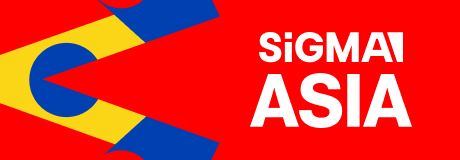EU Gaming News - July 2011

MEMBER STATE NEWS
UK plans to introduce amendments to the 2005 Gambling Act
On 14 July 2011, the UK's Minister for Tourism and Heritage, John Penrose, announced his intention to present proposals to amend the 2005 Gambling Act so that remote gambling is regulated on a point of consumption basis. Consequently, all operators selling into the British market, whether from the UK or abroad, will be required to hold a Gambling Commission licence to enable them to transact with British consumers and to advertise in Great Britain.
Penrose's proposals will also imply a phase-out of the existing white list. Penrose emphasized that the Gambling Commission will however ensure that regulatory good practice is recognised so that overseas based businesses in trusted jurisdictions such as the white listed countries, will have much lighter touch approach and will not have to duplicate regulatory work.
The Government will now start working with the Gambling Commission and other stakeholders to develop the detailed arrangements for the new licensing system which will require changes to primary legislation.
Following Penrose's announcement, the UK's Economics and Finance Ministry revealed that it will review the case for amending the taxation regime for remote gambling in line with his proposals. One of the main challenges will be to prevent operators being subject to double taxation on online gambling.
Please find here the Written Declaration issued by the UK Minister for Tourism and Heritage.
Belgium refuses to refer the new Belgian Gaming Law to the European Court of Justice
On 14 July 2011, the Belgian Constitutional Court issued its decision not to refer the new Belgian Gaming Law to the Court of Justice of the European Union (CJEU) on the basis that it is compliant both with the Belgian Constitution and EU laws.
The case had been initiated by Betfair International and the Remote Gambling Association (RGA) who filed a complaint stating that the law violates European Union rules. In particular, the parties tried to challenge the link between online and offline licenses and the requirement to have the server located in Belgium. According to their complaint, the new Belgian Gaming Law places barriers for foreign competition within the online gambling market.
In its ruling, the Belgian Court concluded that the law is sufficiently clear and there is therefore no need to refer the case to the CJEU.
Please follow this link to the website of the Constitutional Court of Belgium (case number 2011-128).
Denmark and Alderney to sign bilateral cooperation agreement on gambling
The Danish Gambling Authority (DGA) and the Alderney Gambling Control Commission (AGCC) have agreed the terms for a bilateral cooperation agreement, which will establish a formal basis for cooperation and information sharing between them. The agreement, which aims to create a basis for cooperation and information sharing, will however not be legally binding until the formal passing of the Danish Gaming Act expected to be later this year.
Initially planned for 1 January 2011, the entry into force of the new Danish rules (aimed at opening the market for online gambling services) was postponed after EUROMAT member, the Danish Amusement Machine Industry Association (DAB), and the land-based casino operator "Royal Casino" contested the logic behind the new duties regime that would impose a differential tax treatment between online and land-based gambling operators. Although the Danish authorities justified the difference due to the "wholly different" and non-comparable nature of both markets, the European Commission decided to open a formal investigation to analyse potential incompatibilities with Internal Market rules.
The Danish Gaming Act may now face an even longer delay as a final decision by the could be postponed until after the summer recess.
Please find here the note issued by the Alderney Gambling Control Commission.
Finland to strengthen state gambling monopoly
On 1 July 2011, the new Government in Finland announced its plans to further crack down on foreign gambling operators in a move that was welcomed by the country's Slot Machine Association, RAY (Raha-automaattiyhdistys).
Although the exact details have not yet been revealed, the main aim of the Governments' plans is to strengthen the current monopoly system for gambling by restricting gambling abroad.
Finland already ring-fences RAY and its two other gambling monopolies, namely Veikkaus for lotteries and sports betting and Fintoto for horse betting, through a blanket ban on adverts from foreign gambling companies.









































There are written rules.
rules for writing comments